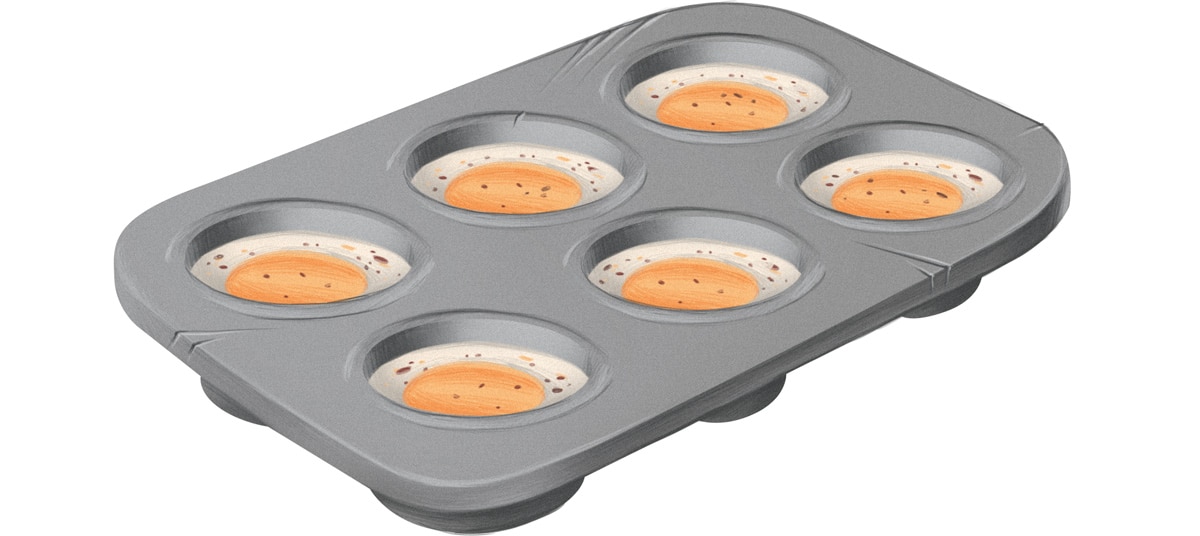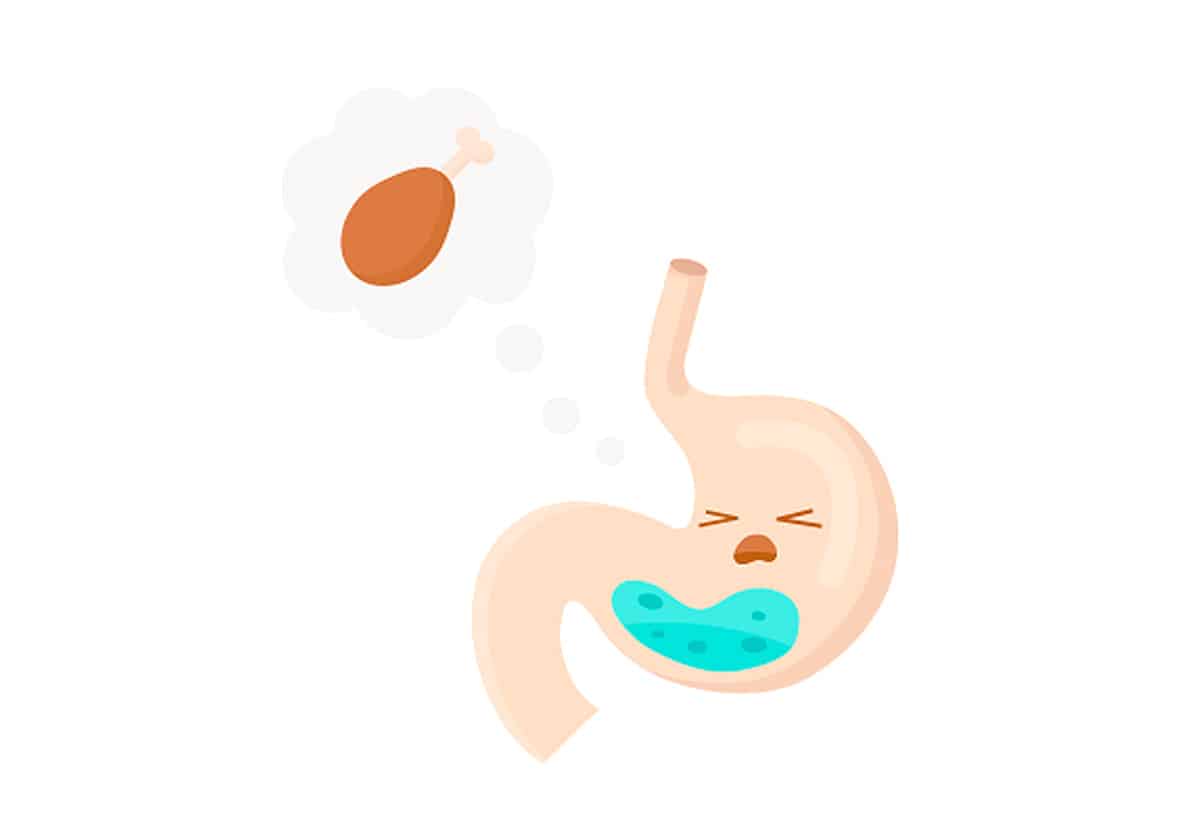Low-carb and ketogenic diets are famous for reducing appetite - a lot of people rave that they barely feel hungry at all or just “forget to eat.” But what’s the actual evidence behind this? If you want maximum appetite suppression, is it better to go full keto or stick with a more moderate low-carb approach?
Take a look at the research on both types of diets below: the short version is that yes, both of them “work,” but probably for different reasons, and neither seems to be clearly better than the other.
Low-carb, non-keto diets and hunger
Not all low-carb diets are ketogenic. “Low-carb” is a pretty fuzzy concept, but the average American eats (or at least, reports eating) 48.5% carbs, which would be approximately 240-360 grams of carbs, depending on total calorie intake. So just for the sake of definition, we’ll call a “low-carb” diet anything that gets meaningfully under that “average” carb count.
In practice low-carb diets do seem to reduce hunger, but the magic likely comes from eating more protein, not just cutting out carbs.
Eating more protein (which naturally happens on low-carb) reduces appetite

When most people cut carbs, they just naturally start eating more protein. For example…
- Switching from oatmeal (8g protein per ¾ cup dry; 12% calories from protein) to eggs (19g protein per 3 eggs; 38% calories from protein) for breakfast.
- Switching from pretzels (2.6g protein per ounce; 9% calories from protein) to almonds (6g protein per ounce; 13% calories from protein) for a snack.
Even if you only cut out carb-dense foods from your diet without changing anything else, you’d still be getting a higher percentage of your total calories from protein.
Eating more protein as a percentage of calories definitely does reduce appetite, no matter what you do with carbs. A lot of studies have shown that switching from 15% protein (typical American diet) to 30% protein (roughly the average for low-carb diets in studies), makes people feel less hungry no matter what’s going on with the rest of their diet. Unsurprisingly, research has found that low-carb + high-protein diets make people spontaneously eat less - in that particular study, people eating to hunger on low-carb/high-protein ate 1,000 fewer calories every day than people on a typical diet. That’s a huge difference!.
So to the extent that low-carb diets are also higher-protein diets, they also reduce appetite just from the protein alone.
Direct effects of reducing carbs
Does reducing carbs help control appetite completely apart from the protein issue?
This study allowed the subjects (all healthy men) to eat as much as they were hungry for, on one of three diets. All three diets had exactly the same amount of protein (12% of calories). The difference was in the proportion of fat and carbs:
- High-carb diet: 20% fat/68% carbs
- Medium-carb diet: 40% fat/48% carbs
- Low(ish)-carb diet: 60% fat/28% carbs
The results: there was no difference among any of the diets. When protein was constant, swapping out carbs for fat didn’t reduce the amount the men ate. Since they were given unlimited food and told to eat until they were full, this suggests that reducing carbs to 28% didn’t reduce hunger compared to 68%.
This study, on healthy adult women, found similar effects at 18% protein. The women got either 24% fat and 58% carbs (high-carb) or 47% fat and 35% carbs (low-ish carb, high fat). But varying the ratio of carbs to fat didn’t change how much the subjects ate when they were allowed to eat to hunger.
There hasn’t been a lot of research on this since the natural thing to do on low-carb diets is to raise protein, not just raise fat and leave protein alone. But it’s at least suggestive that moderate carb reduction per se doesn’t magically suppress appetite, unless you also increase protein to go with it.
On the other hand, in the real world, cutting carbs usually also means upping protein, so most people will feel an appetite reduction on a low-carb diet - it’s just not about the carbs.
Keto diets and hunger

Moving on from ordinary low-carb to keto, we’re in completely different metabolic territory. Research suggests that ketosis does suppress appetite, even during calorie restriction.
This 2014 meta-analysis looked at all the studies up to that point about keto and hunger. The researchers found that overall, most studies found that people on keto diets “were less hungry and had a reduced desire to eat” - this is particularly notable because it happened even during calorie restriction/weight loss, when people typically get more hungry, not less.
Since keto has an initial adaptation period, in this study, researchers looked at the timeline of hunger after you start keto. For 8 weeks, the participants followed a very low-calorie ketogenic diet (so if you’re eating keto but not restricting calories, bear in mind that it might not totally apply to you). The researchers found “a transitory increase in hunger from baseline up to 3 weeks” - after 3 weeks, it went away.
How does it work?
This study goes over all the physiology and the potential reasons why keto might work so well as an appetite suppressant:
- Higher levels of free fatty acids in the blood after a meal may send a signal to the brain to suppress appetite. It’s possible that these fatty acids make their way to the brain and reduce levels of neuropeptide Y (NPY). Neuropeptide Y makes you hungry, so less NPY makes you full.
- Ketosis suppresses the usual rise in ghrelin, a hormone that makes you feel hungry. (More recent research has confirmed that a ketone drink reduces ghrelin)
- Ketosis also keeps people secreting the hormone Cholecystokinin (CCK) after a meal. CCK suppresses hunger, so the longer you keep secreting CCK, the longer you feel full after eating
- The “mild euphoria” that people feel during ketosis can help reduce appetite
Low-carb vs. Keto
There doesn’t seem to be much difference between low-carb and ketogenic diets in terms of hunger suppression. One study suggested that a 0-carb diet beat a 30% diet for hunger, but the subjects ate each diet for a whopping total of 2 days, which isn’t enough time to get used to either type of diet.
This study compared a non-ketogenic low-carb diet (40% carbs, 30% fat, 30% protein by calories) to a ketogenic diet over 6 weeks, which is more realistic. The researchers found that:
“Hunger ratings tended to improve over the 6-wk trial in both diet groups, from “no particular feeling” (the middle of the range) to “satisfied” (P = 0.078), and hunger ratings did not differ significantly between diet groups.”
So again, the longer people stay on a low-carb or keto diet, the more the benefits kick in, but there doesn’t seem to be a huge difference in practice between the two, at least not in the overweight but otherwise healthy adults in this study.
The Big Picture
Overall, this research suggests that low-carb or ketogenic diets likely reduce hunger more than low-fat, high-carb diets with comparable calorie content.
- For garden variety low-carb diets, this might just be a function of adding more protein, rather than anything specific to carb reduction.
- For ketogenic diets, the benefits might come from more protein, or they might be metabolic changes specific to ketosis.
Either way, if chronic appetite problems are your weight-loss challenge, low-carbing or keto might be worth a shot.





Leave a Reply